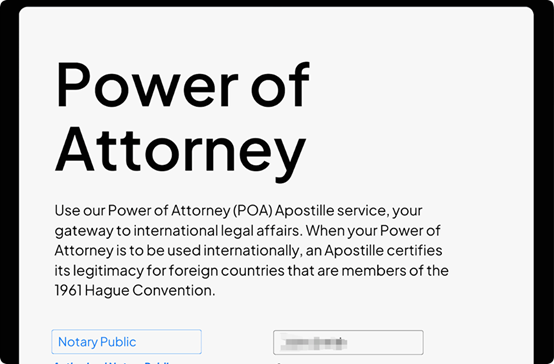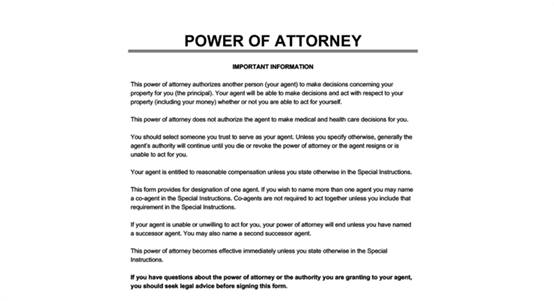Does a Power of Attorney (POA) in New South Wales Require a Lawyer? The Answer Might Surprise You!
What is a Power of Attorney (POA)?
A Power of Attorney (POA) is a legal document. It allows a person or organization to make decisions for someone else. In Australia, a POA is a crucial tool for managing personal matters, property, and health decisions.
A POA allows the principal to choose an attorney. This attorney can handle specific tasks if the principal cannot act or make decisions.

Types of Powers of Attorney?
In Australia, there are several types of Powers of Attorney, each suited for different situations and needs. Here are the most common types:
1. General Power of Attorney
A General Power of Attorney grants an attorney the authority to handle financial matters, buy and sell property, and more. However, this POA is usually only valid when the principal has the capacity to make decisions.
Think of it as a "temporary worker"—it only "works" when you are able to make decisions on your own. If you lose capacity due to an accident or illness, it immediately "ceases to function." For example, if you ask a friend to help sell a property, the General Power of Attorney lets them act for you. This is true while you are mentally and physically able.
However, if the principal loses capacity (e.g., due to health issues or an accident), the General Power of Attorney becomes invalid.[Access General (Non-Enduring) POA forms.]
2. Enduring Power of Attorney
The Enduring Power of Attorney is a more powerful and long-lasting form of authority. It is like a "faithful long-term partner" that remains in effect whether you are in good health or incapacitated.
Imagine that as you get older, your physical abilities may decline. You might also face a serious illness or accident. The Enduring POA makes sure your financial, medical, and personal affairs keep running smoothly. You won’t have to worry about them.
This POA not only remains valid when the principal is capable but continues to function if the principal loses decision-making capacity. The Enduring Power of Attorney is for people worried they might lose their ability to make decisions. This can happen due to aging, illness, or an accident. The principal can grant the attorney authority over financial, medical, and personal matters.
The Enduring POA must be executed in the prescribed format.[Access Enduring POA templates.]
3. Medical Power of Attorney
The Medical Power of Attorney allows the appointed attorney to make health-related decisions on behalf of the principal if they are unable to do so. This POA is important for anyone who wants a trusted person to make health decisions for them. This applies in case of illness or emergency.
How to Differentiate Between Different Types of Powers of Attorney?
A General Power of Attorney is good for people who can still manage their own affairs. It allows them to choose someone to handle specific tasks, like managing property.
An Enduring Power of Attorney is for people who want a trusted person to manage their affairs. This is important if they lose the ability to make decisions in the future.
A Medical Power of Attorney helps make health and medical decisions. This includes choices about treatments and emergencies.
Who Needs a Power of Attorney?
A Power of Attorney is helpful for many people. It is especially useful for those who want to plan ahead. This is important in case they cannot manage their own affairs. For example:
Elderly individuals: Older people may wish to ensure that someone is available to handle their personal matters if their health declines.
People with chronic illnesses: Those with chronic diseases or facing major surgery may need to arrange a Medical POA to ensure that a trusted person can make decisions on their behalf when they are unable to.
Travelers: Individuals who travel frequently, especially to high-risk areas, may need to appoint someone to handle emergency matters.
Requirements for the Principal?
For the principal, there are typically some basic requirements:
Full legal capacity: The principal must understand the content and consequences of the POA. In other words, the principal needs to sign the document when they are fully capable of making decisions.
Voluntariness: The POA should be signed voluntarily, without any coercion or undue pressure.
Does a Power of Attorney Require a Lawyer?
In Australia, you do not always need a lawyer to create a Power of Attorney. This is true for General and Enduring Powers of Attorney.
To make sure the document is legal and effective, it is often a good idea to consult a lawyer. This is especially true for complex financial management or medical decisions. A lawyer can help ensure that the POA complies with relevant legal requirements and will be properly enforceable.
Key Considerations for Powers of Attorney
Signing Requirements
A Power of Attorney (POA) usually needs to be signed.
This signing must happen in front of a witness or a notary public. This is especially true for Enduring Powers of Attorney or Medical Powers of Attorney. The requirements can be different in each state and territory. It is important to know the local laws.
Revocation and Updates
The principal has the right to revoke or modify their POA at any time, as long as they have full legal capacity. When revoking the POA, the principal should notify the attorney and any relevant third parties to ensure they are aware of the revocation.
Attorney’s Responsibilities
The attorney is required to act in the best interest of the principal, follow the terms of the POA, and comply with the law. The attorney must not abuse their power.

A Power of Attorney is an essential legal tool for managing personal, medical, and financial matters. By selecting the appropriate type of POA and designating a trustworthy attorney, the principal can ensure their affairs are properly managed in case they are unable to act. When drafting a POA, particularly for significant financial or medical decisions, it is advisable to consult with a lawyer or legal professional to avoid potential legal risks. AHL Legal hopes that you can complete the POA that suits your circumstances.



 1300 91 66 77
1300 91 66 77







 HOME
HOME


